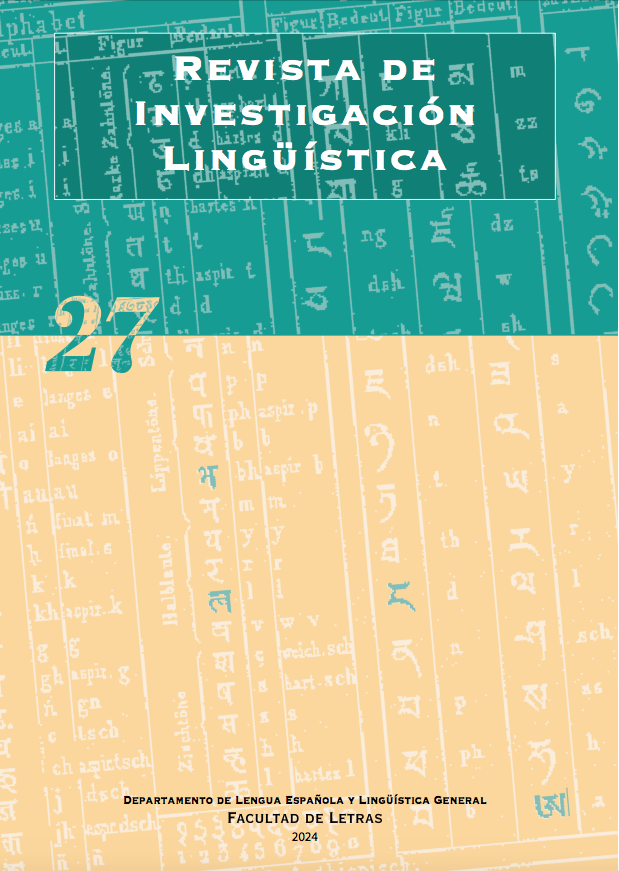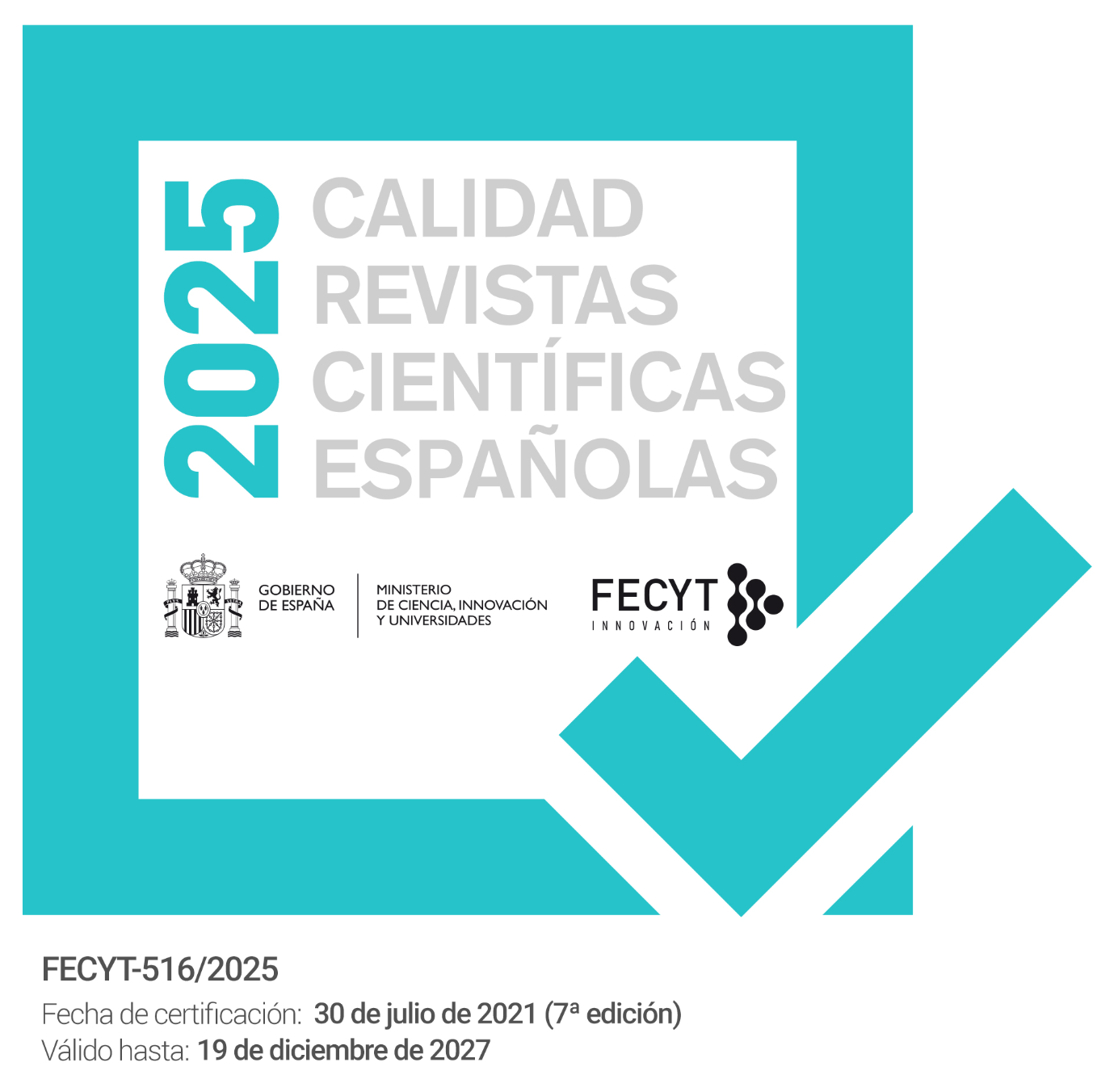Refugees in the discourse of former Argentine presidents Cristina Fernández and Mauricio Macri: figures, a problem or people?
Abstract
This work aims to analyse the representation of refugees in public speeches by former Argentine presidents Cristina Fernández and Mauricio Macri. For that purpose, a set of speeches was selected from those delivered by Fernández in the last year of her term (2015) and by Macri in the first year of his term (2016). All the speeches selected contain references to refugees. Our research adopts the research framework of Critical Discourse Analysis (CDA) and it applies a qualitative methodology. The analysis shows that Mauricio Macri constructs an open-minded and multicultural discourse, which describes Argentina as a country receiving refugees, but which dehumanises migrants. In contrast, Fernández lays special emphasis on the personal stories of refugees, their odyssey across countries that rejected them, and the global economic and political conditions that triggered their need to leave certain countries.Downloads
-
Abstract291
-
PDF (Español (España))136
References
BIERNAT, Carolina (1999): «Migrantes, refugiados y fugitivos: las ambiguas políticas migratorias del primer peronismo (1946-1955)», Exils et migrations ibériques au XXe siècle, 7, pp. 95-121. DOI: https://doi.org/10.3406/emixx.1999.1031
DIRECCIÓN NACIONAL DE POBLACIÓN (2022): Caracterización de la migración internacional en Argentina a partir de los registros administrativos del RENAPER, Buenos Aires, Ministerio del Interior de la República Argentina.
DOMENECH, Eduardo (2009): «La visión estatal sobre las migraciones en la argentina reciente. De la retórica de la exclusión a la retórica de la inclusión», en Eduardo Domenech (ed.), Migración y política: el Estado interrogado. Procesos actuales en Argentina y Sudamérica, Córdoba, Universidad Nacional de Córdoba, pp. 21-70.
DOMENECH, Eduardo (2015): «Inmigración, anarquismo y deportación: la criminalización de los extranjeros “indeseables” en tiempos de las “grandes migraciones”», REMHU, 23(45), pp. 169-196. DOI: https://doi.org/10.1590/1980-8585250319880004509
FAIRCLOUGH, Norman (1992): Discourse and Social Change, Cambridge, Polity Press.
FAIRCLOUGH, Norman (2014) : Language and Power, Londres, Routledge. DOI: https://doi.org/10.4324/9781315838250
FAIRCLOUGH, Norman y Ruth WODAK (2000): «Análisis crítico del discurso», en Teun Van Dijk (ed.), El discurso como interacción social. Estudios sobre el discurso II. Una introducción multidisciplinaria, Barcelona, Gedisa, pp. 367-404.
FILLMORE, Charles (1982): «Frame Semantics», en Linguistic Society of Korea (ed.), Lin-guistics in the Morning Calm, Seoul, Hanshin Publishing Co, pp. 111-137.
FLAX, Rocío (2019): «La construcción del inmigrante en el discurso político argentino: el caso del Parque Indoamericano», Revista D.E.L.T.A- Documentação e Estudos em Linguística Teórica e Aplicada, 35(4), pp. 1-20. DOI: https://doi.org/10.1590/1678-460x2019350411
FLAX, Rocío (2020a): «Acerca de las dificultades de ser políticamente correcta: el discurso de Cristina Fernández sobre les migrantes», Revista Refracción, 1, pp. 35-61.
FLAX, Rocío (2020b): «El discurso del expresidente argentino Mauricio Macri con respecto a les migrantes: lo dicho y lo silenciado», Revista Signo y Seña, 37, pp. 18-36. DOI: https://doi.org/10.34096/sys.n37.7975
FLAX, Rocío (2020c): «Representaciones sobre migrantes en Argentina durante la presidencia de Cristina Fernández: ¿una posible alternativa al discurso dominante?», Revista Lengua y migración, 12(2), pp. 45-64. DOI: https://doi.org/10.37536/LYM.12.2.2020.1031
FLAX, Rocío (2021a): «La invisibilización de les migrantes en el discurso presidencial argentino durante el primer año de gobierno de Néstor Kirchner», Estudios del discurso, 7(2), pp. 151-170. DOI: https://doi.org/10.30973/esdi.2021.7.2/8
FLAX, Rocío (2021b): «La conceptualización de les migrantes en el discurso político argentino del siglo XXI», Revista da Abralin, 20(3), pp. 78-92. DOI: https://doi.org/10.25189/rabralin.v20i3.1906
FOUCAULT, Michel (1995 [1978]): La verdad y las formas jurídicas, Barcelona, Gedisa.GOLAY, Isabel (2013): «Argentina “crisol de razas”: ficción y realidad», en VII Jornadas de Jóvenes Investigadores, Buenos Aires, Universidad de Buenos Aires.
GRIMSON, Alejandro (2006): «Nuevas xenofobias, nuevas políticas étnicas en la Argentina», en Alejandro Grimson y Elizabeth Jelin (eds.), Migraciones regionales hacia la Argentina. Diferencia, desigualdad y derechos, Buenos Aires, Prometeo.
GRUPO DE ESTUDIOS EN ANTROPOLOGÍA Y DISCURSO (2002): «De inmigrantes a delincuentes. La producción de los indocumentados como amenaza social en el discurso policial», Cuadernos de Antropología Social, 15, pp. 91-109.
HART, Christopher. (2010): Critical Discourse Analysis and Cognitive Science. New Perspectives on Immigration Discourse, Londres, Palgrave/Macmillan. DOI: https://doi.org/10.1057/9780230299009_2
HART, Christopher. (2014): Discourse, Grammar and Ideology, Londres, Bloomsbury.
HODGE, Robert y Gunther KRESS (1993): Language as Ideology, 2.nd ed., Londres, Routledge & Kegan Paul Books.
LAKOFF, George (1987): Women, Fire and Dangerous Things, Chicago, University of Chica-go Press. DOI: https://doi.org/10.7208/chicago/9780226471013.001.0001
LAKOFF, George y Mark JOHNSON (2003): Metaphors We Live By, Chicago, The University of Chicago Press. DOI: https://doi.org/10.7208/chicago/9780226470993.001.0001
MELELLA, Cecilia (2015): «Migraciones latinoamericanas y prensa gráfica. Análisis comparativo entre Argentina y España», Odisea. Revista de Estudios Migratorios, 2, pp.157-183.
RAITER, Alejandro (2004): «Hacia una crítica de las formas lingüísticas», en Alejandro Raiter y Julia Zullo (eds.), Sujetos de la lengua, Buenos Aires, Gedisa, pp. 178-193.
ROMANO, Silvina (2009): «Integración económica, desarrollo y migraciones en el MERCOSUR una aproximación crítica», en Eduardo Domenech (ed.), Migración y política: el Estado interrogado. Procesos actuales en Argentina y Sudamérica, Córdoba, Universidad Nacional de Córdoba, pp. 257-300.
SANDOVAL GARCÍA, Carlos (ed.) (2020): Puentes, no muros: contribuciones para una política progresista en migraciones, Buenos Aires / México, CLACSO y Fundación Rosa Luxemburg. DOI: https://doi.org/10.2307/j.ctv1gm022b
SORIA, Sofía (2009): «Las migraciones y el discurso multi/intercultural del estado en argenti-na», en Eduardo Domenech (ed.), Migración y política: el Estado interrogado. Procesos actuales en Argentina y Sudamérica, Córdoba, Universidad Nacional de Córdoba, pp. 103-138.
TANNEN, Deborah (1996): Gender and Discourse, Oxford / Nueva York, Oxford University Press.
VAN LEEUWEN, Theo (2008): Discourse and Practice. New Tools for Critical Discourse Analysis, Oxford, Oxford University Press. DOI: https://doi.org/10.1093/acprof:oso/9780195323306.001.0001
VARSAVSKY, Oscar (1969): Ciencia, política y cientificismo, Buenos Aires, Centro Editor de América Latina.
Copyright (c) 2024 Journal of Linguistic Research

This work is licensed under a Creative Commons Attribution-NonCommercial-NoDerivatives 4.0 International License.
The works published in this magazine are subject to the following terms:
1. The Publications Service of the University of Murcia (the publisher) preserves the economic rights (copyright) of the published works, and favors and allows the reuse of same under the license of use indicated in point 2.
2. The papers are published in the electronic edition of the magazine under a Creative Commons Attribution-NonCommercial-NoDerivative 3.0 Spain license (legal text). Papers may be copied, used, disseminated, transmitted and publicly exhibited if the following requirements are met: i) The authorship and the original source of its publication (magazine, editorial and URL of the work) must be cited; ii) The works cannot be used for commercial purposes; iii) The existence and specifications of this user license must be explicitly mentioned.
3. Self-archiving conditions. Authors can electronically disseminate pre-print versions (version before being evaluated) and / or post-print versions (version evaluated and accepted for publication). This makes possible its circulation and diffusion earlier and with it a possible increase in its citation and reach among the academic community. RoMEO color: green.










